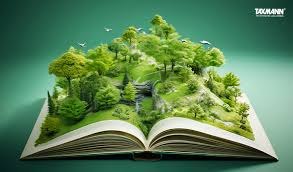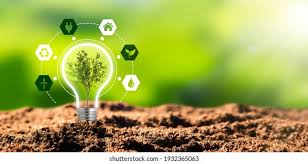
Welcome to educational technologies course. This Course specifies the competencies you require to apply educational technologies, it involves applying concepts in flexible and blended Learning, navigating through a Learning Management System (LMS), applying Universal Design for Learning (UDL), planning for the development of training resources, and developing Training resources.
Upon completion of this course; you will be able to: Apply concepts in flexible and blended Learning, navigate through a Learning Management System (LMS), apply Universal Design for Learning (UDL), plan for the development of training resources, Develop Training resources.
- Teacher: Felix Mugambi
- Teacher: Trainer Odel

Natural Resource Management
Welcome to the Natural Resource Management course. This course is designed to provide you with a thorough understanding of how to sustainably manage natural resources such as water, forests, minerals, and wildlife. You will learn about the principles of conservation, the balance between resource use and environmental protection, and the challenges of managing resources in a changing world. The course will equip you with the skills to assess, plan, and implement strategies for the responsible use and preservation of natural resources, ensuring their availability for future generations.
- Teacher: Felix Mugambi
- Teacher: Trainer Odel

Welcome to the Approaches to Environmental Study course. This course will introduce you to various methods and perspectives used to understand and address environmental issues. You will explore scientific, social, and policy-based approaches to studying the environment, learning how different disciplines contribute to solving complex environmental challenges. From fieldwork and data analysis to policy-making and community involvement, this course will provide you with a comprehensive toolkit to approach environmental problems from multiple angles. By the end, you'll be prepared to critically assess environmental issues and contribute to sustainable solutions.
- Teacher: Felix Mugambi
- Teacher: Trainer Odel

Welcome to the Climate Change course. In this class, you will gain a deep understanding of the causes, impacts, and solutions to one of the most pressing issues of our time—climate change. You will explore how human activities contribute to global warming, the science behind climate systems, and the effects on ecosystems, weather patterns, and communities worldwide. This course will also cover strategies for mitigation and adaptation, empowering you with the knowledge to contribute to solutions for a sustainable future. By the end, you will be equipped to make informed decisions and take action in the fight against climate change.
- Teacher: Felix Mugambi
- Teacher: Trainer Odel

Welcome to the Soil Science course, where you will explore the fundamental role soil plays in the environment. This course will introduce you to the physical, chemical, and biological properties of soils, as well as their importance in agriculture, ecosystems, and sustainability. You will learn how soils support plant growth, influence water quality, and act as a key factor in the fight against climate change. Through practical and theoretical approaches, this course will equip you with the skills to manage and conserve soils for future generations.
- Teacher: Felix Mugambi
- Teacher: Trainer Odel
